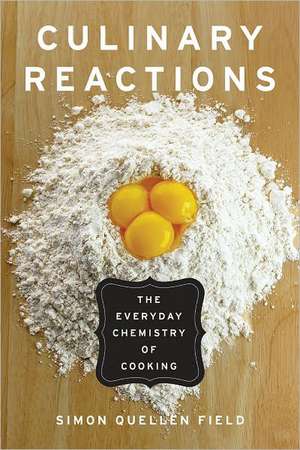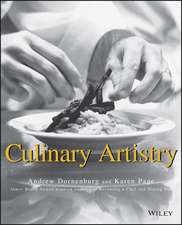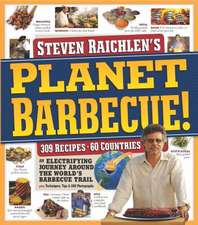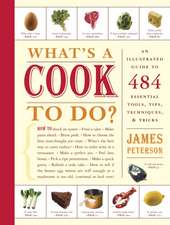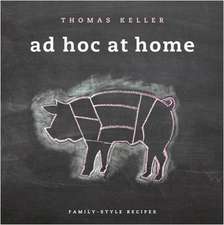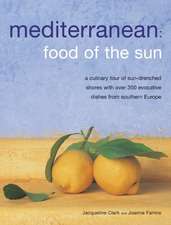Culinary Reactions: The Everyday Chemistry of Cooking
Autor Simon Quellen Fielden Limba Engleză Paperback – 31 oct 2011
In Culinary Reactions, author Simon Quellen Field turns measuring cups, stovetop burners, and mixing bowls into graduated cylinders, Bunsen burners, and beakers. How does altering the ratio of flour, sugar, yeast, salt, butter, and water affect how high bread rises? Why is whipped cream made with nitrous oxide rather than the more common carbon dioxide? And why does Hollandaise sauce call for "clarified" butter? This easy-to-follow primer even includes recipes to demonstrate the concepts being discussed, including: Whipped Creamsicle Topping--a foam; Cherry Dream Cheese--a protein gle; Lemonade with Chameleon Eggs--an acid indicator; and more
Preț: 99.36 lei
Nou
Puncte Express: 149
Preț estimativ în valută:
19.01€ • 19.74$ • 15.86£
19.01€ • 19.74$ • 15.86£
Carte disponibilă
Livrare economică 04-18 martie
Preluare comenzi: 021 569.72.76
Specificații
ISBN-13: 9781569767061
ISBN-10: 1569767068
Pagini: 237
Dimensiuni: 154 x 228 x 15 mm
Greutate: 0.42 kg
Editura: Chicago Review Press
ISBN-10: 1569767068
Pagini: 237
Dimensiuni: 154 x 228 x 15 mm
Greutate: 0.42 kg
Editura: Chicago Review Press
Descriere
When you’re cooking, you’re a chemist! Every time you follow or modify a recipe, you are experimenting with acids and bases, emulsions and suspensions, gels and foams. In your kitchen you denature proteins, crystallize compounds, react enzymes with substrates, and nurture desired microbial life while suppressing harmful bacteria and fungi. And unlike in a laboratory, you can eat your experiments to verify your hypotheses. In Culinary Reactions, author Simon Quellen Field turns measuring cups, stovetop burners, and mixing bowls into graduated cylinders, Bunsen burners, and beakers. How does altering the ratio of flour, sugar, yeast, salt, butter, and water affect how high bread rises? Why is whipped cream made with nitrous oxide rather than the more common carbon dioxide? And why does Hollandaise sauce call for “clarified” butter? This easy-to-follow primer even includes recipes to demonstrate the concepts being discussed, including:
· Whipped Creamsicle Topping—a foam
· Cherry Dream Cheese—a protein gel
· Lemonade with Chameleon Eggs—an acid indicator
